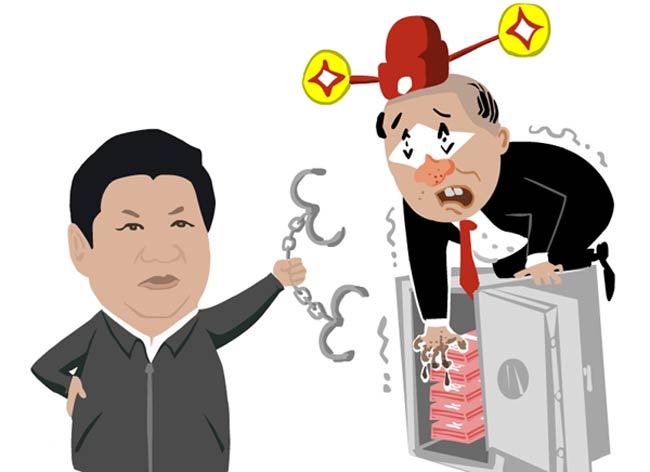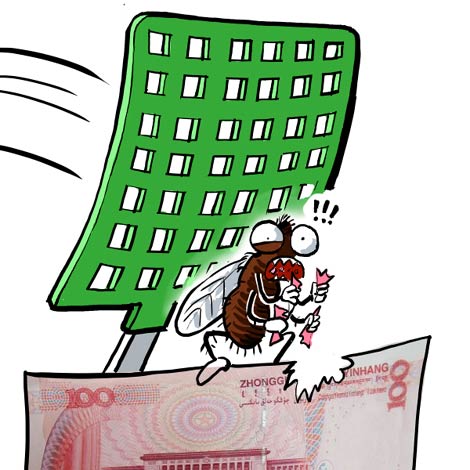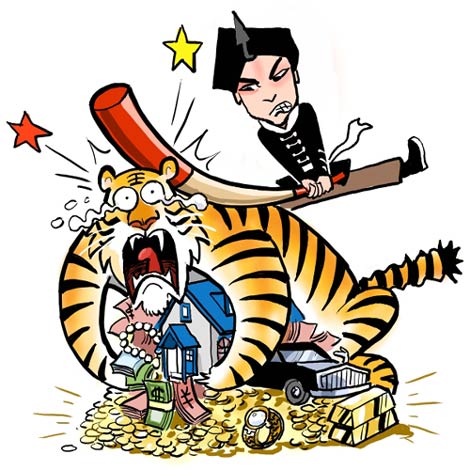
China has stepped up its anti-graft campaign since last year, charging more senior-level officials with corruption while initiating an overhaul of the country’s anti-corruption systems.
The Party vowed to fight both “tigers” and “flies” - meaning high-flying politicians and lowly bureaucrats - in its anti-graft drive at the 18th Communist Party of China National Congress in late 2012. Later, it stressed the idea of “systematic anti-corruption” at the two sessions in March 2013.
Since the 18th CPC National Congress in 2013, more than 20 ministerial-level officials have been investigated as of Feb 28, including government chiefs and heads of State-owned conglomerates.
Most of investigations came after the 2013 two sessions. The campaign targeted top officials of the security bureau, the national oil company and other previously untouchable power centers.
According to the Central Commission for Discipline and Inspection, the Party’s watchdog, 182,000 officials were punished for disciplinary violations in 2013, an increase of more than 20,000 over 2012, and of nearly 40,000 over 2011.
Thousands of officials have been disciplined for extravagances such as hosting lavish banquets, weddings and funerals, spending public funds inappropriately on travel, the improper use of government vehicles and the constructing luxurious government buildings.
The authorities have become more open to fighting corruption. The change in mindset has facilitated public supervision by establishing Internet channels to report misdeed. A number of corruption cases, as a result, have been uncovered with the help of online tips.
In building up systematic efficiency in fighting corruption, China has made the trials of some corrupt officials more transparent. In December, it released its anti-graft roadmap for 2013-2017.
 |
 |